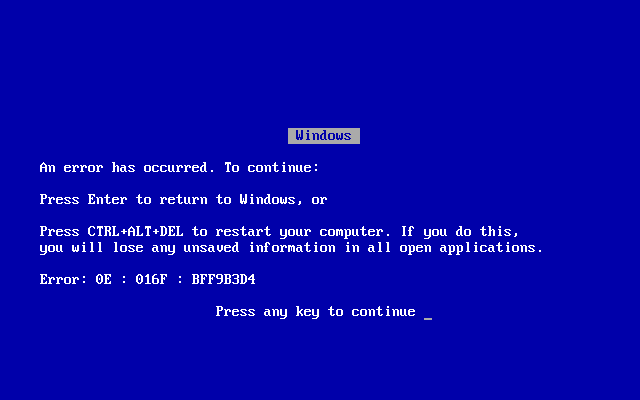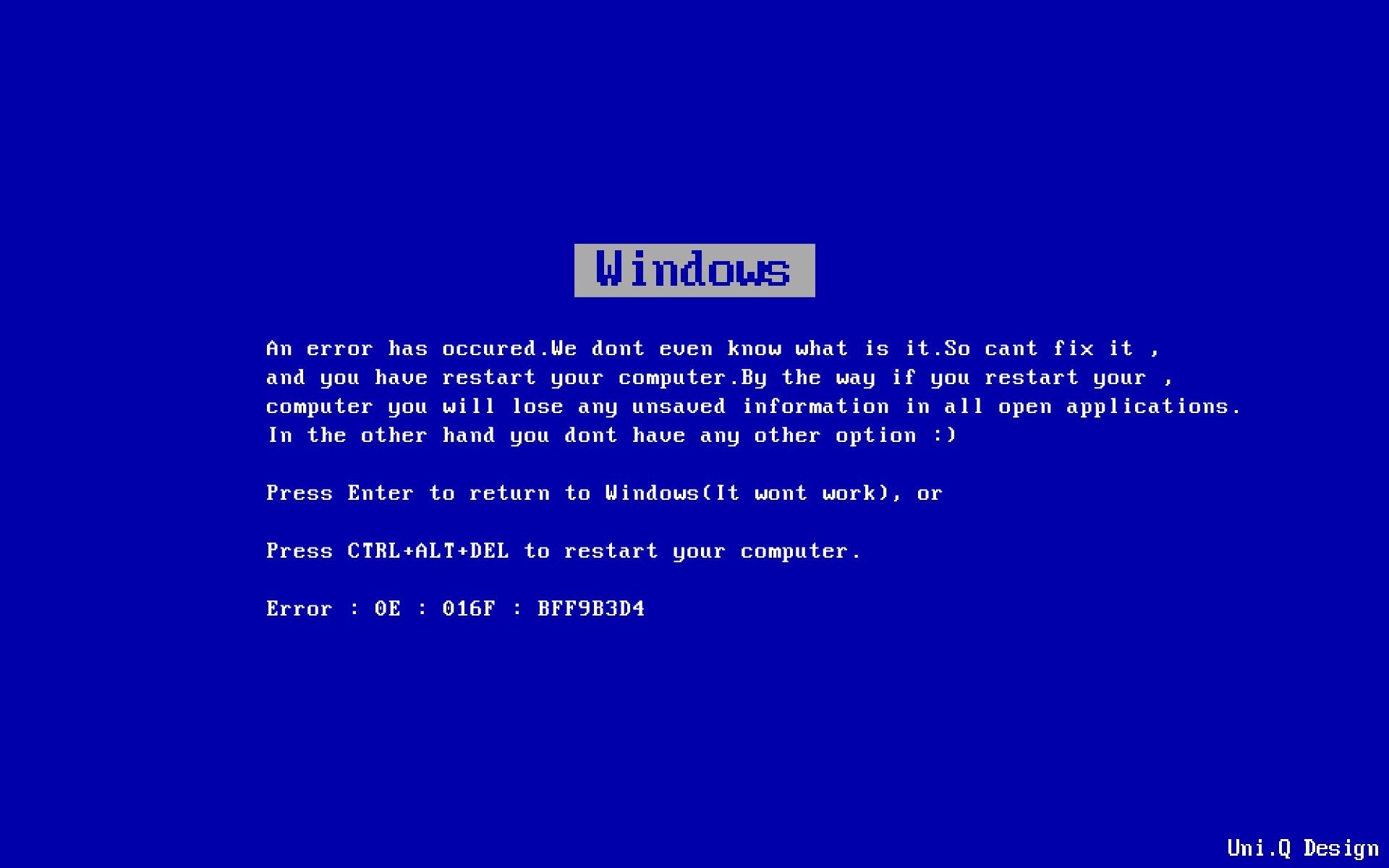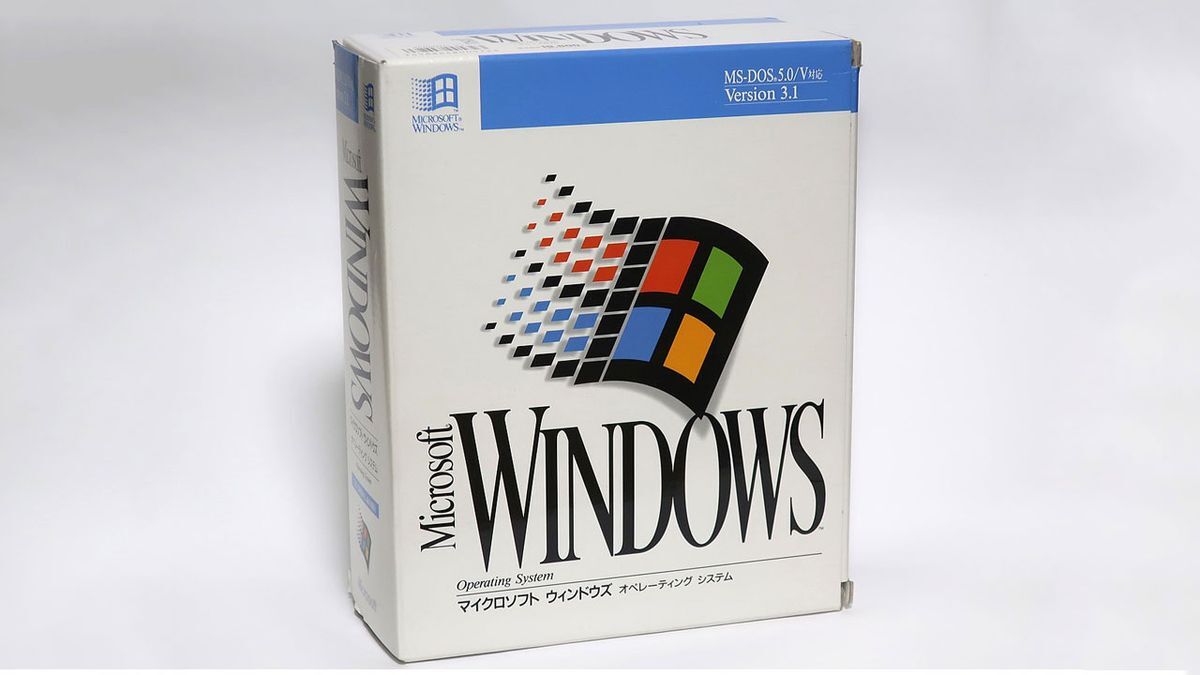Southwest Airlines, the fourth largest airline in the US, is seemingly unaffected by the problematic CrowdStrike update that caused millions of computers to BSoD (Blue Screen of Death) because it used Windows 3.1. The CrowdStrike issue disrupted operations globally after a faulty update caused newer computers to freeze and stop working, with many prominent institutions, including airports and almost all US airlines, including United, Delta, and American Airlines, needing to stop flights.
Windows 3.1, launched in 1992, is likely not getting any updates. So, when CrowdStrike pushed the faulty update to all its customers, Southwest wasn’t affected (because it didn’t receive an update to begin with).
The airlines affected by the CrowdStrike update had to ground their fleets because many of their background systems refused to operate. These systems could include pilot and fleet scheduling, maintenance records, ticketing, etc. Thankfully, the lousy update did not affect aircraft systems, ensuring that everything airborne remained safe and were always in control of their pilots.
Or, for your consideration, could it perhaps be because they don’t use crowdstrike?
Yeah, what? 3.1 not getting updates has nothing to do with this. Software developed for 3.1 can still be updated. This article is just silly.
deleted by creator
Likely the same reason why banks and other financial institutions still use COBOL and Fortran code written in the 1970s or earlier on archaic mainframes: Top management decided at some point it was too expensive to rewrite everything from scratch in some modern language for modern hardware, so they just limp along with what they have.
A 16-bit app written for Windows 3.x would almost certainly have to be rewritten for modern, 64-bit Windows.
While i figured the cost would be a factor, i just figured they were sticking with a system that works. If it serves their needs effectively and reliably, why change it?
Edit: answered my own question–it doesn’t work anymore, and that’s why it needs to be changed
😂👌🏻nice edit
It isn’t even a Windows update, but a software update.
My Linux servers weren’t affected either. I think it’s because of Windows 3.1
My wife shared this with me yesterday, but I didn’t see it:

Somebunny is gonna learn those things aren’t windows-based today!
Just yesterday I had that exact “Tech enthusiast vs tech worker” meme play out. I wanted a timer to control the electrical outlet for an aquarium bubbler. Saleswoman really wanted to sell me this “smart” controller with an app that can program the outlet.
Me:“What happens when the app stops working?”
(saleswoman is frantically flipping the box over for answers)
Her:“…maybe…it keeps the existing timer?”
I’ve got about six smart plugs that all stopped working because of lack of support. I am no longer interested in smart plugs.
Shelly makes devices that are compatible with ESPHome and Tasmota, solving this problem.
For only way more time and money, you can buy a zigbee smart plug and a vendor agnostic zigbee hub flashed with FOSS, or you can buy a esp-based board, wire it up with a relay, and flash it with something like esphome.
Sure, it’s way more money and hours of work (cumulatively), but it won’t lose support!
I just bought a bunch of TP Link equipment I knew was compatible and loaded up Home Assistant onto a Raspberry Pi. Best of both worlds
I bought some TP link Kasa plugs and a couple of years later when I wanted some more the Kasa brand was discontinued and replaced by Tapo in Sweden. Tapo and Kasa only work with their own separate app so I would have had to have two separate apps even though both were TP link. Never bought any more smart plugs.
Aw man, that’s a shame! Kasa is still around in the US, I only got mine a couple months ago. They do seem to offer both, so I wonder if Kasa is on the way out here too
My old thermostat was basically two teaspoons of mercury that would expand and contract with the temperature to short out two leads. They didn’t let me keep it when I got a new one, but I got the dumbest one they had.
I got a new HVAC and smart thermostat about a week ago. After researching, I decided to hook thermostat to wifi and download app. Mostly all the app does is duplicate the same functionality that the thermostat controls have. I find it handy to have a remote control for the thermostat.
OTOH I decided not to hook up a new washing machine to wifi and use app. It duplicated the functionality of the appliance controls also, but there was no point in having remove controls for a washing machine.
The critical thing is that an appliance needs to be fully functional without needing to use wifi and certainly not a phone app.
I feel like every article out there is missing this and keeps blaming Windows Update vs an update pushed to a specific piece of software by a third-party developer. I get end-users not understanding how things work but tech writers should be more knowledgeable about the subject they write about for a living.
Yeah what a badly written article, with awful takeaways.
Best feature windows 3.1 has:
… it doesn’t pop up message telling you to upgrade to windows 11.
or add shitty AI tools without asking.
or constntly nag you to use their cloud storage
Plus all them decks for solitaire!!!
My windows 10 PC is telling me I don’t qualify for a free Windows 11 update, so I’ve got that going for me.
Haha. I’ve got one of those too.

deleted by creator
Shhh don’t give microsoft any ideas
Windows 3.1 didn’t have the BSOD. It just froze. I remember with Windows NT 4, when we first got the BSOD, being so grateful that Microsoft decided to actually tell us that our computer wasn’t going to recover from the error. Otherwise, we’d just be sitting there, waiting, hoping it would unfreeze itself.
It never did
I think that NT 3.51 had a blue screen of death
Windows 3.1 did have a BSOD. It wasn’t always fatal, you could try to hit enter to go back to Windows, but most of the time it wasn’t really recoverable, Windows often wouldn’t work right afterwards.
I ran into them all the time in 3.11 on our 486 which had some faulty RAM (the BSOD would even be scrambled). If we could get back to Windows after that, it’d just be in a zombie state where moving the mouse around would paint stuff over whatever was left on screen, and wouldn’t respond to clicks or keypresses.
Fun times.
IIRC Windows 95 did that as well
Are you sure? I remember a long time ago being able to trigger a BSOD by opening Windows Calculator and dividing any number by 0. And I’m pretty sure that was 3.1 or 3.11.
In fact, I remember being able to change the color of the BSOD.
As another user mentioned, the BSOD first came in Windows NT 3.51.
But it definitely wasn’t in Windows 3.1 or Windows 3.11
The other user is wrong. I clearly remember the BSoD in Windows 3.1. You can find it easily with a simple web search. Here it is:

Hell, there were even memes of it:

Edit: I provided proof and was still downvoted lol. This place is quickly turning into reddit.
Windows 3.1 absolutely did have a BSoD, and as the other person mentioned, sometimes you could press a key and the OS would recover. More often than not you needed to reboot, though. Our family PC would BSoD all the damn time, and I had to put up with it throughout a good portion of my early childhood until my dad finally bought a Windows 98 SE PC. But that OS also had its fair share of instability issues. The “illegal operation” error message was a near-daily occurance.
It wasn’t until we got our first NT-based machine (XP) that we stopped having constant issues with Windows. The DOS-based Windows OSes were notoriously unstable.
😄it still do that on my over 20y old 2gig RAM Arch KDE on wayland macBookPro 🤔
The fact that they’re running 3.1 is not something to be proud of. They’re probably extremely vulnerable to any other attack.
Quite the opposite.
Please explain. I’ll make 🍿
Microsoft’s Wolverine for the TCP stack was not available until Windows 3.11. An argument could be made that these systems are defacto air-gapped as they cannot communicate with modern networking.
Youre assuming the article is using “windows 3.1” to mean the exact version of the OS, instead of just the proper name of the OS overall. That probally unlikley.
Since lacking a network stack tends to limit usability, unless the systems are intentionally air gapped they likely are on windows 3.1.1 or later. Based on Southwest extensively documented and decades long IT neglect that landed its current COO in front of Congress for a previous days long outage, i doubt the systems are intentionally airgapped, as that implies a working and well funded IT department.
Just because it doesn’t have TCP/IP doesn’t mean there isn’t networking. Networks existed before the Internet and its Internet Protocol after all. It wouldn’t be so much air gapped as so archaic that only the most targeted attacks would work, and only if there is an infected PC acting as an intermediate between the Internet and ye olde network. Chances are it was never connected to the modern Internet as the technologies just aren’t compatible.
Old doesn’t mean secure. Those old systems have had decades since the last security patch. Even then computer security was barely a consideration for the developers.
I am not saying it is, normally old systems are the least secure. The bit you’re not getting is that this system is almost certainly air gapped, just not by choice. It can’t work with modern networks. It can’t work with modern viruses. Any exploit a modern hacker would think to use probably doesn’t exist yet. It’s a bit like trying to break someone’s car by putting sugar in the fuel, except they ride a horse. Do you get it yet?
This… Doesn’t make me feel any better about flying Southwest
i don’t think there’s any possible way to feel better about flying southwest
Wait till you hear of how much COBOL in industries…
Old programming languages are fine. Hard to maintain though. But they all compile down to machine code at the end of the day.
Old operating systems on the other hand means they are vulnerable to all kinds of exploits that have been discovered in that OS over the past few decades. That’s a much bigger problem.
i think you accedentaly put southwest instead of spirit.
Spirit is already a non starter for me because my legs don’t fit in the seat haha
because Boeing or why?
This is the “can’t get a Word Document macro virus because I use the Corel WordPerfect Document type” kind of energy.
Ah, nothing’s wrong with WordPerfect, honestly. Still better than Word.
Does it run on Wine?
Funny the page recommends OpenOffice when the entire FOSS community has moved on to LibreOffice in a middle-finger to Oracle.
Besides, OO and LO are shit. AbiWord is where it’s at.
Who needs AbiWord when you can use WordTsar?
No, it doesn’t, because Corel didn’t buy WordPerfect until 1996.
Edit: man, y’all really don’t understand either jokes or the linear progression of time.
I miss our Corel word perfect :(
It still exists. You can use it
One X user suggested that the company switch to Windows XP—it’s also no longer updated, and it can run Windows 3.1 applications via compatibility mode.
Maybe that was a joke, but if anything that would reduce their security. Windows 3.1 and 95 are old enough that they can’t even run most stuff from the last two and a half decades, which probably protects them. XP is just new enough, and plenty old enough, to be very risky.
Reminds me of an episode of Ghost in the Shell where a hacker in a hyper-advanced cyberised society was using floppy disks as a storage medium because they were so slow.
One of the background details I liked in Ghost in the Shell was how the high-end data analysts and programmers employed by the government did their work using cybernetic hands whose fingers could separate into dozens of smaller fingers to let them operate keyboards extremely quickly. They didn’t use direct cybernetic links because that was a security vulnerability for their brains.
They’re also so old they were compiled without any modern instrumentation, e.g. stack canaries.
Holy crap, they are serious. I though I was on !programmer_humor@programming.dev for a minute. I sure hope none of those computers are connected to the internet. There’s a massive number of vulnerabilities in windows 3.1 and windows 95.
Windows 3.1 doesn’t even come with a TCP/IP stack. It’s actually pretty safe.
As long as that’s the exact version they’re using. Windows for workgroups 3.11 has networking.
Yep. I remember - despite the fact it was old even then - building and connecting a Win 3.11 machine to a TCP/IP office network as a proof of concept back in 2000 or so. I might have even installed Netscape on it. I don’t remember clearly now, but I assume the parts for the computer came out of the spares pile, and were soon recycled back into other machines.
Bold of you to assume any of the “experts” writing about this know what a TCP/IP stack is
The “source” is a tweet from a random dude, it’s almost certainly not true.
But how many people are looking for Windows 3.1 anything today?
Well I suppose now there might be more
Is this actually confirmed anywhere though? I keep seeing it repeated and the only ‘source’ is a ?xeet? .
Same, I’m pretty sure it’s not true.
I’m inclined to believe this post, claiming this article is BS https://mastodon.social/@jplebreton/112825798853315264
Yes, the update bricked the systems, meaning the software that powers their business was unaccessible, reinstalling any version of windows would not restore the software built on top of the os. Thus why it became a huge ordeal rather than a simple update push from Microsoft, a bricked system can’t receive a fix remotely.
Maybe don’t pay a company to install a rootkit on your critical infrastructure?
Just open up your critical infrastructure to the public Internet and you’ll get rootkits for free.
This is both awesome and frightening for many reasons
If they still use Windows 3.1 and it works, then I do have to wonder about the rest of their security setup.
Windows 3.1 can’t use modern versions of tls which means it’s effectively impossible to network it securely.
You just know there’s an SMB share somewhere with no password, where files filled with unencrypted customer details get dumped for processing by an ancient AS400 server.
So…Battlestar Galactica scenario?
I love such things in Star Wars too.
And not sure whether there’s been a plot play with the Katana fleet (all ships were slaved to the flagship, all crews including that of the flagship caught a virus causing them to go mad and die, and while they were still alive, the fleet jumped in unknown direction ; it was found later and ships reused by sides of the civil war) where its obsolete electronics and software were actually an advantage security-wise.
Though in that universe it seems that interfacing and integrating wildly different systems is more or less a normal thing, since there are lots of planets, lots of races and some things still in operation are few centuries old.
lol
Hang on, if you’re using CrowdStrike but not getting the updates, then why are you using it at all?
Because none of these journalists have a basic understanding of what actually happened lol


















